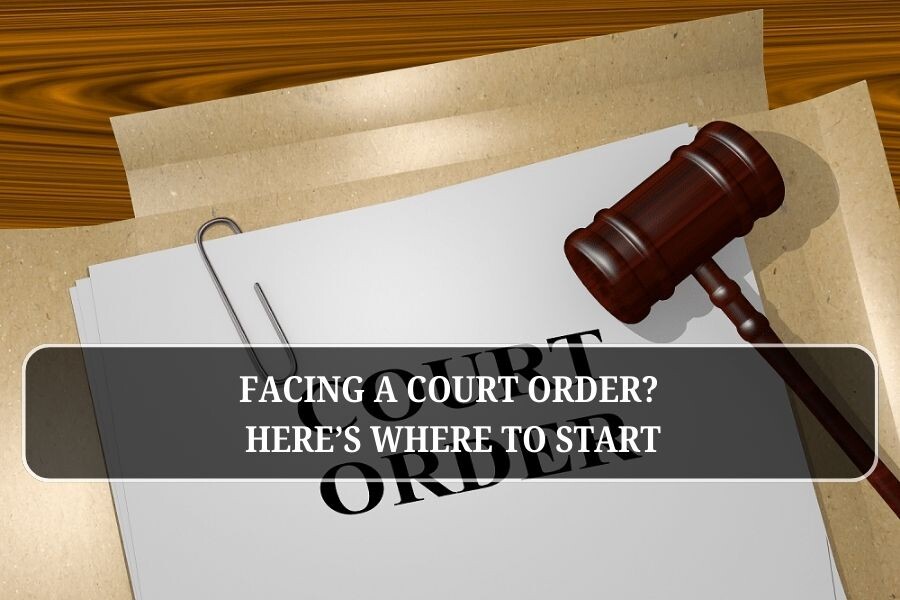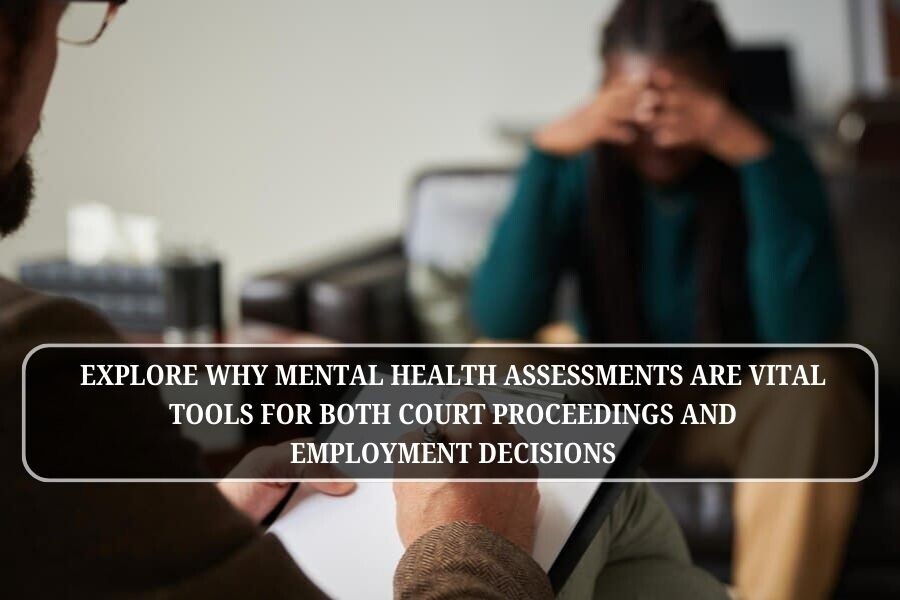Disclaimer: This article is for informational purposes only and does not constitute legal or medical advice. Department of Transportation (DOT) regulations are subject to change. If you have specific questions regarding a violation, please consult a qualified Substance Abuse Professional (SAP) or legal counsel.
Receiving a notification of a drug or alcohol violation is a pivotal moment for any safety-sensitive employee. Whether you are a CDL driver, a pilot, or a pipeline worker, a failed test or refusal to test triggers an immediate removal from duty. It can feel like your career has come to a screeching halt.
However, the Department of Transportation (DOT) has established a structured path designed to help you address safety concerns and return to work legally. This path is known as the DOT SAP Program.
Navigating this program can be confusing. The regulations (49 CFR Part 40) are dense, and the stakes—your livelihood—are incredibly high. This guide is designed to cut through the jargon and provide a clear, step-by-step roadmap for successfully completing the DOT SAP Program in 2025.
What Is the DOT SAP Program?
The DOT SAP Program is a federally mandated process that any employee performing safety-sensitive duties must complete after violating DOT drug and alcohol regulations.
The program is not punishment; it is a safety protocol. Its primary goal is to evaluate employees to ensure they do not pose a risk to the public before they are allowed to return to safety-sensitive functions.
Central to this program is the Substance Abuse Professional (SAP). The SAP is a specially qualified clinician who acts as a “gatekeeper” for the DOT. They are responsible for evaluating you, recommending education or treatment, and ultimately determining if you have demonstrated successful compliance.
You cannot return to safety-sensitive duty—regardless of what state you are in or who your employer is—until you have successfully completed the DOT SAP Program.
Step-by-Step Breakdown of the DOT SAP Program
Understanding the timeline and sequence of events is crucial for minimizing downtime. Here is exactly how the process works from the moment of violation to your return to the road.
Step 1: Immediate Removal from Safety-Sensitive Duties
The moment a Medical Review Officer (MRO) verifies a positive drug test, or an employer confirms an alcohol violation or refusal to test, you must be removed from safety-sensitive functions immediately.
- Employer Responsibility: Your employer must provide you with a list of qualified Substance Abuse Professionals (SAPs).
- Driver Responsibility: You must stop performing safety-sensitive duties immediately. Continuing to drive or work after a violation is a serious federal offense.
Step 2: Selecting a Qualified SAP
While your employer provides a list, you are generally free to choose any DOT-qualified SAP, provided they meet the geographical or technological requirements for assessment.
In 2025, you have two main options for your evaluation:
- In-Person Evaluation: You visit the SAP’s office physically.
- Technology-Assisted Evaluation (Remote): The DOT permanently authorized the use of video technology for assessments, provided the audio and visual quality allows for a proper clinical interview.
Tip: Ensure your chosen SAP is currently qualified and has completed their continuing education requirements. A lapsed qualification can void your entire process.
Step 3: The Initial SAP Evaluation
This is the official start of your DOT SAP Program. During this face-to-face (or video) interview, the SAP will:
- Review your violation history.
- Discuss your substance use history and medical background.
- Determine the extent of the problem (if any).
- Develop a mandatory plan for education and/or treatment.
Important: The regulations require the SAP to recommend some level of education or treatment for every violation. There is no “zero recommendation” option.
Step 4: Completing the Education or Treatment Plan
After the initial evaluation, the SAP will refer you to a provider for the recommended course of action.
- Education: This may involve a drug and alcohol education course (often 8-12 hours).
- Treatment: This could range from outpatient counseling to inpatient rehabilitation, depending on the severity of the assessment.
You must complete this recommendation exactly as prescribed. You cannot “shop around” for a different recommendation if you disagree with the SAP’s plan. Once a plan is set, it is binding.
Step 5: The Follow-Up SAP Evaluation
Once you have finished the education or treatment, you must return to the same SAP for a follow-up evaluation.
The purpose of this meeting is not to re-diagnose you, but to determine compliance. The SAP will assess:
- Did you attend all sessions?
- Did you participate actively?
- Have you learned from the education?
- Have you demonstrated a commitment to safety?
If the SAP determines you have successfully complied, they will issue a Notice of Compliance. This document is the “green light” that tells an employer you are eligible to take a Return-to-Duty test.
Step 6: The Return-to-Duty (RTD) Test
With the SAP’s clearance in hand, you are now eligible to be sent for a Return-to-Duty drug test.
- Who orders it? Your current employer or a potential new employer.
- The Procedure: This test must be directly observed by a collection site staff member of the same gender. This is a strict federal requirement designed to prevent cheating.
A negative result on this test is the final hurdle before you can legally resume safety-sensitive functions.
Step 7: Follow-Up Testing Plan
Even after you are back on the job, the DOT SAP Program continues in the background. The SAP will prescribe a schedule of unannounced follow-up tests.
- Minimum Requirement: At least 6 tests in the first 12 months.
- Duration: The testing plan can last up to 60 months (5 years).
- Nature: These tests are in addition to random selection. They are unannounced and must be directly observed.
Timelines: How Long Does the Process Take?
One of the most frequent questions drivers ask is, “How long will I be out of work?”
Because the DOT SAP Program is clinically driven, there is no fixed timeline. The duration depends entirely on the SAP’s clinical recommendation and your dedication to completing it.
Scenario | Typical Duration (Estimated) |
|---|---|
Education Track | 2 – 4 Weeks |
Outpatient Treatment | 6 – 12 Weeks |
Inpatient Treatment | 30 – 90 Days |
Note: These are estimates. Administrative delays, scheduling conflicts, or failure to comply can extend these timelines significantly.
Responsibilities: Driver vs. Employer
A successful return to duty requires cooperation between the driver (employee) and the employer. However, the responsibilities are distinct.
Employee / Driver Responsibilities
- Find and Pay for SAP: Unless specified in a union contract, the employee is typically responsible for locating and paying the SAP.
- Follow the Plan: You must attend all sessions and pay for the education/treatment provider.
- Abstinence: You must remain drug/alcohol-free. A positive test during treatment can restart the entire process.
- Transparency: You must provide the SAP with all necessary information honestly.
Employer Responsibilities
- Immediate Removal: The employer is liable if they allow you to work after a violation.
- Referral: They must provide contact information for qualified SAPs (though they don’t have to pay for it).
- Ordering RTD Test: Only an employer can order the Return-to-Duty test. You cannot order this for yourself.
- Clearinghouse Reporting: Employers must report the negative RTD result and the successful completion of the follow-up testing plan to the FMCSA Clearinghouse.
Crucial Distinction: Employers are not required to hold your job open. The DOT regulations govern safety, not employment law. An employer can terminate you for the violation, even if you successfully complete the SAP program. However, completing the program makes you eligible to be hired by a new employer.
The FMCSA Clearinghouse and Reporting
For CDL drivers, the FMCSA Drug and Alcohol Clearinghouse plays a massive role in the DOT SAP Program. This online database tracks violations in real-time to prevent drivers from “hopping” jobs to hide a failed test.
What gets reported?
- The initial violation (positive test, refusal, etc.).
- The date of your initial SAP assessment.
- The date the SAP determines you are eligible for RTD testing.
- Your negative Return-to-Duty test result.
- Completion of the follow-up testing plan.
Your Status in the Clearinghouse
- “Prohibited”: This status appears immediately upon violation. No employer can dispatch you.
- “Not Prohibited”: Your status only changes back to this after the SAP confirms compliance AND a negative RTD test result is uploaded.
If you fail to complete the DOT SAP Program, your status remains “Prohibited” indefinitely. There is no expiration date on a violation in the Clearinghouse.
Common Myths and Misunderstandings
Misinformation spreads quickly in break rooms and online forums. Let’s debunk the most common myths regarding the DOT SAP Program.
Myth 1: “I can just wait 3 years for the violation to drop off.”
Fact: False. A violation stays on your record until you successfully complete the SAP process. It does not “time out.” You could wait 10 years, and you would still need to see a SAP to drive commercially again.
Myth 2: “The SAP works for the company.”
Fact: The SAP’s primary loyalty is to public safety, not the employer or the employee. They are neutral evaluators. An employer cannot pressure a SAP to “hurry up” a clearance, nor can they force a SAP to change a recommendation.
Myth 3: “I can get a second opinion.”
Fact: Under 49 CFR Part 40, you cannot seek a second SAP evaluation just because you dislike the first recommendation. Once you start the evaluation process with a qualified SAP, you are locked in. “Doctor shopping” is prohibited and can be flagged as a refusal to comply.
Myth 4: “I can take the Return-to-Duty test on my own.”
Fact: No. An RTD test is a specific type of federal drug test. It must be ordered by an employer (current or prospective). You cannot walk into a clinic and pay for your own DOT Return-to-Duty test.
Frequently Asked Questions (FAQ)
Is the DOT SAP Program confidential?
Yes, within limits. The SAP will not share your clinical details (like what you said in therapy) with your employer. They only report whether you are compliant or non-compliant and what the follow-up testing plan is. However, your violation and status are recorded in the FMCSA Clearinghouse.
How much does the DOT SAP Program cost?
Costs vary by region and provider.
- SAP Evaluation: Typically ranges from $400 to $600 (covers initial and follow-up).
- Education/Treatment: Can range from $150 for a class to thousands for treatment, depending on your insurance and the SAP’s recommendation.
- Drug Tests: Follow-up tests are usually paid for by the employer, but some companies charge this back to the driver.
Can I fail the DOT SAP Program?
You cannot “fail” the evaluation itself, but you can be found non-compliant. If you miss classes, fail a drug test during treatment, or do not participate actively, the SAP will not sign off on your return. You would then have to continue treatment until the SAP is satisfied.
What if I don’t agree with the SAP’s recommendation?
The SAP’s decision is final under DOT regulations. There is no appeals process for the clinical recommendation. Your only path back to safety-sensitive duty is to complete the plan as prescribed.
Can I do the education online?
Usually, yes. However, the course or counseling must be approved by your SAP. You cannot just pick a random online class; it must meet specific criteria regarding content and duration.
Conclusion
The DOT SAP Program is rigorous, but it is also a clearly defined roadmap. While a violation can feel like a career-ending event, thousands of drivers and safety-sensitive employees successfully navigate this process every year and return to work safely.
The key to success is compliance. Do not look for shortcuts or “easy” SAPs. Instead, focus on finding a qualified, professional SAP who can guide you through the requirements efficiently and respectfully. The faster you engage with the process honestly, the sooner you can get back to your career.
Don’t let a violation define your future.
If you are currently in “Prohibited” status, take the first step today. Visit our SAP Evaluation Services page to learn more or schedule your assessment with a qualified DOT-certified professional.
Get evaluated. Get compliant. Get back to work.









